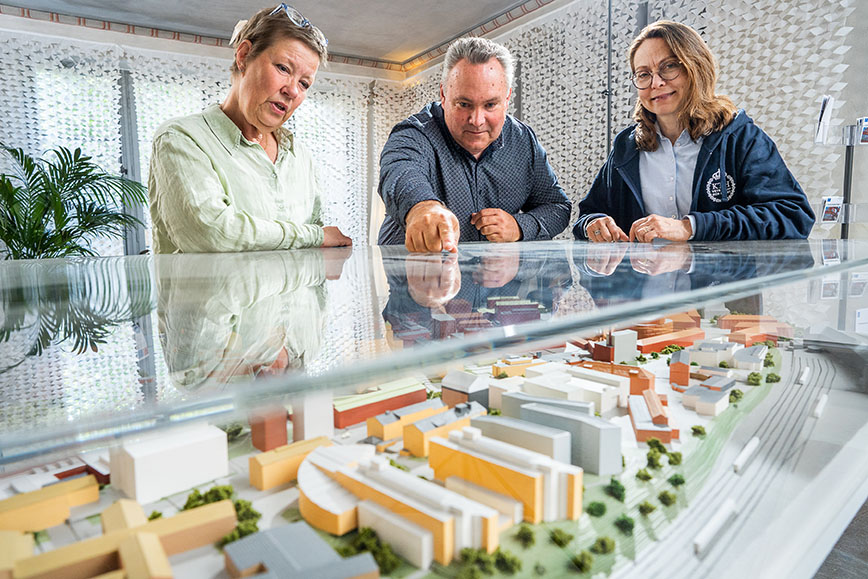“It’s about ensuring a functioning workday for everyone”

KTH’s service functions are now being mapped, and lab safety is under review. The project group working on infrastructure in the merger project also discerns a need to define a number of roles and areas of responsibility when it comes to infrastructure.
“The overriding priority in our work has been to gain a cohesive picture of what infrastructure is,” says Hans Wohlfarth, Head of IT.
He says that infrastructure encompasses a wide range of support and service functions, and that they are currently carried out in different ways and at different levels within KTH.
Charlotta Andersson Lund, Head of the Property Department, says that roles and responsibilities in the area of infrastructure also need to be clarified:
“The people in infrastructure at the various schools are doing important work, but the areas of responsibility vary somewhat and involve different tasks and duties at each of the five schools. We, therefore, need to define roles and responsibilities so that the organisation understands what kind of support it can expect.”
The action plan for the amalgamation project lists the following priority development areas for infrastructure:
- Lab Safety
- Service
- Premises
- Archives
- Registry
- IT coordination
One of the project group’s key guiding principles is that the support that comes under the heading of infrastructure should be coordinated more between the different schools and campus, and be more equal. Marie Larsson, Head of Administration at CBH, stresses that the ultimate aim of the merger is to ensure a functioning workday for everyone at KTH.
Service and lab safety
Part of the mapping work entails preparing process descriptions for the service work carried out in different parts of KTH.
“We’re currently identifying what actual work tasks are included in service as an area of support, so we have a comprehensive picture. This encompasses everything from catering management and conference booking, to how access passes and caretaking services are dealt with. Operational support at the five schools is equal to a great extent; the differences lie in who does the work and in which organisational unit,” says Larsson.
Charlotta Andersson Lund says that an overall idea is needed of what service centres and desks there are at KTH, and we may be able to coordinate and share existing support in a better way.
Lab safety is another development area the project group is currently mapping, to ensure safe working in all of KTH’s lab environments. This is important from a health and safety perspective.
“One step is to begin the process of producing a service catalogue for the area,” says Marie Larsson
Hans Wohlfarth says that the foundation work for IT coordination has taken place gradually over several years and is essentially finished.
“The key now is to evolve and enhance the ongoing dialogue with the organisation in IT-related issues so we can better understand KTH’s IT support needs. It’s important to us that we have the organisation’s trust, and we want to work more proactively together,” says Wohlfarth.
Marie Larsson says that some specialisation in different service roles and more coordination will be needed at KTH moving forward. The Head of Department Advisory Board has expressed concern that operational know-how could decline among support functions if operations-related support and personal contact decrease.
“For us, it’s about ensuring that everyone in the organisation can trust that they’ll get the support they need, and that it’s perceived as personal service. The key is to work together in good networks and systems,” says Marie Larsson.
Text: Marianne Norén
